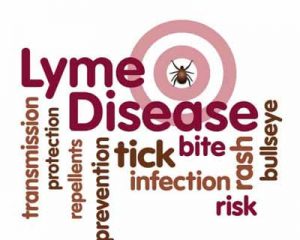- Home
- Editorial
- News
- Practice Guidelines
- Anesthesiology Guidelines
- Cancer Guidelines
- Cardiac Sciences Guidelines
- Critical Care Guidelines
- Dentistry Guidelines
- Dermatology Guidelines
- Diabetes and Endo Guidelines
- Diagnostics Guidelines
- ENT Guidelines
- Featured Practice Guidelines
- Gastroenterology Guidelines
- Geriatrics Guidelines
- Medicine Guidelines
- Nephrology Guidelines
- Neurosciences Guidelines
- Obs and Gynae Guidelines
- Ophthalmology Guidelines
- Orthopaedics Guidelines
- Paediatrics Guidelines
- Psychiatry Guidelines
- Pulmonology Guidelines
- Radiology Guidelines
- Surgery Guidelines
- Urology Guidelines
New Effective Vaccines for Lyme Disease in offing

There is no effective vaccine currently available to prevent Lyme disease in humans.
Experts from academia, government, and industry convened at Cold Spring Harbor Laboratory’s Banbury Center to tackle this public health challenge. Now, a new paper published in the October 17, 2019, issue of Clinical Infectious Diseases highlights the conference discussions, reiterates the need to stop the infection, and defines a strategy for developing effective vaccines.
“Countermeasures such as vaccines are needed to stem the growing number of cases per year,” said Dr. Steven Schutzer, a senior author on the paper and physician-scientist at Rutgers New Jersey Medical School. “This is extremely important because you can get Lyme disease more than once.”
Lyme disease is caused by Borrelia burgdorferi, a bacterium transmitted through the bite of an infected tick. The only preventative measure currently available to humans is “guidance” for avoiding tick bites. The ineffectiveness of this strategy is suggested by the estimated 300,000 diagnosed cases of Lyme disease that occur annually in the United States, along with more than 100,000 in Europe.
Early diagnosis and treatment can combat the infection, however, if left untreated, the risk increases that the infection can spread to the joints, heart and nervous system. Even those who have been successfully diagnosed and treated can be re-infected if bitten again.
The authors of this new paper used discussions at the Banbury Center meeting to identify the most promising new strategies to counteract infection.
“We can envision the development of hybrid vaccine strategies targeted both to the offending microbe and to its tick carrier to prevent Lyme disease.” said Dr. Maria Gomes-Solecki, lead author of the paper and a researcher at the University of Tennessee. “It is a two-prong approach.”
In addition to describing new scientific approaches, the authors consider the societal implications of a new vaccine. “Lyme disease vaccination is an individual’s personal choice,” the authors note. “The concept of personal immunization against a non-contagious disease versus widespread vaccination to prevent the spread of a contagious infection should be part of public education and discussion.”
Dr. Rebecca Leshan, Executive Director of the Banbury Center, notes that a prior meeting on improved diagnostics has already had major effects, with FDA approval of a number of tests that bring clarity to the field. Outcomes from the most recent meetings, she said, continue to set the right course of action.
“Lyme disease has been a recurring topic for our meetings, and we’re now seeing significant outcomes from those discussions,” she said. “I expect the concepts laid out in the current paper will also have a real impact and help people at risk for Lyme disease.”
For more details click on the link: https://doi.org/10.1093/cid/ciz872

Disclaimer: This site is primarily intended for healthcare professionals. Any content/information on this website does not replace the advice of medical and/or health professionals and should not be construed as medical/diagnostic advice/endorsement or prescription. Use of this site is subject to our terms of use, privacy policy, advertisement policy. © 2020 Minerva Medical Treatment Pvt Ltd